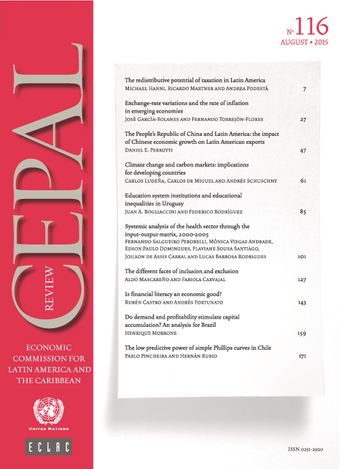-
Climate change and Carbon markets: Implications for developing countries
- Source: CEPAL Review, Volume 2015, Issue 116, Aug 2015, p. 61 - 84
- Spanish
-
- 28 Mar 2016
Abstract
While the Kyoto Protocol provided a framework for reducing the greenhouse gas emissions of industrialized nations, current climate change negotiations envisage future commitments for major CO2 emitters among developing countries. This document uses an updated version of the gtap-e general equilibrium model to analyse the economic implications of reducing carbon emissions under different carbon trading scenarios. The participation of developing countries such as China and India would reduce emissions trading costs. Impacts in Latin America would depend on whether a country is an energy exporter or importer and whether the United States reduces emissions. Welfare impacts might be negative depending on the carbon trading scheme adopted and a countrys trading partners.
© United Nations





